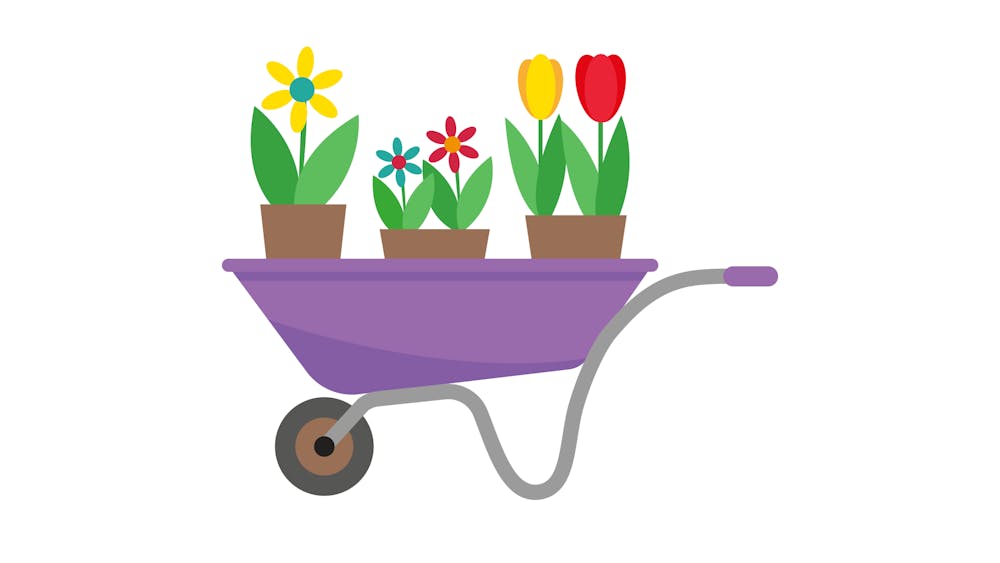While facing anxiety and her first year of college, freshman Kaelise Lane said her hobbies help keep her mental health in check.
“I was diagnosed with anxiety a couple of years ago, so mental health has definitely been a big part of my experience, but I definitely think prioritizing hobbies that you enjoy is my outlet,” Lane said.
Lane said she tries to set aside 15 to 30 minutes each day to take time for herself to do the things she loves — crocheting and watching reality television.
“It’s hard trying to take time out of your day to care for yourself, but I think just realizing that you can’t really perform well in your other responsibilities if you don’t take care of yourself first,” Lane said.
A 2010 study published by the National Library of Medicine found that the more people did enjoyable leisure activities, the lower their stress, blood pressure and total cortisol.
Blair Apgar, an assistant professor of art history, said they like to participate in cycling and try to do as many outdoor activities as possible to soak up the sun.
“I struggle with depression,” Apgar said. “That is just something that is always gonna be there. Vitamin D actually makes a big deal.”
Freshman Leah Brooker said she enjoys walking to classes to soak the scenery around her. Brooker said she also likes to take care of her plants in her dorm because it brings her a sense of peace. She’s not the only one to feel this way about the calming effects of plants.
Kelsey Bitting, an assistant professor of environmental studies, said she gardens at home. In her garden, Bitting grows a wide range of plants such as herbs all the way to hearty vegetables.
“I am a big believer in spending time outside, and I think any time we spend in nature is really healing, but in particular for me,” Bitting said. “The experience of seeing things grow and helping them along the way is a restorative thing for me.”
Director of Counseling Services Anita Hodnett, emphasized the importance of getting outdoors.
“Getting out of the room, getting out of offices, just taking time to be in nature and being in the sunlight and allowing the body to synthesize Vitamin D, which is associated with a more positive mood,” Hodnett said.
Hodnett also said some other baseline strategies to help when navigating with one’s mental health include getting some rest, eating well and exercising.
Bitting said she tries to take around thirty minutes each day to meditate, though sometimes she finds it difficult to find time in her day to meditate.
Sophomore Clare Petznick is a member of Active Minds, a mental health group on campus. She said after joining the club she felt good to know that people also have the same passion for mental health awareness that she has and were going through the same struggles that she was facing. Petznick said talking to people is her way of taking care of her mental health.
“A big thing for me is having a group of people that I can talk to. Some people like having their time to themselves and being able to recharge, but I’ve never been that kind of person,” Petznick said. “I love being around people. When I am around others and I feel like I can be myself, that is how I take care of myself.”
Hodnett said social time and connecting with peers and loved ones, where you can have fun and laugh, can be a positive source of an outlet.
Apgar said students should reach out to others, even faculty members. They said in the past, some of their students have generally confided in them, and they find it gives them context of what is going on in class.
“Try to talk to people you know and trust. Try to reach out to them and have these conversations about your mental health and if you’re struggling.” Apgar said, “The more we kind of talk about it the easier it gets to continually talk about it.”
In addition, Hodnett said she also talks about the outlet that counseling services provide an outlet to students and the faculty and staff wellness office has resources for professors and the faculty and staff wellness office.
“For others, a part of their selfcare journey is perhaps using counseling services,” Hodnett said. “For many, having mental health treatment, therapy or medication can be a part of their self care in ways that they support their mental health.”
Junior Emerson Garon said that sees a therapist once a week and also sees his psychiatrist as needed.
“It is just nice to have somebody be able to talk to about problems who is a professional,” Garon said. “It has definitely improved my mental health a lot.”


